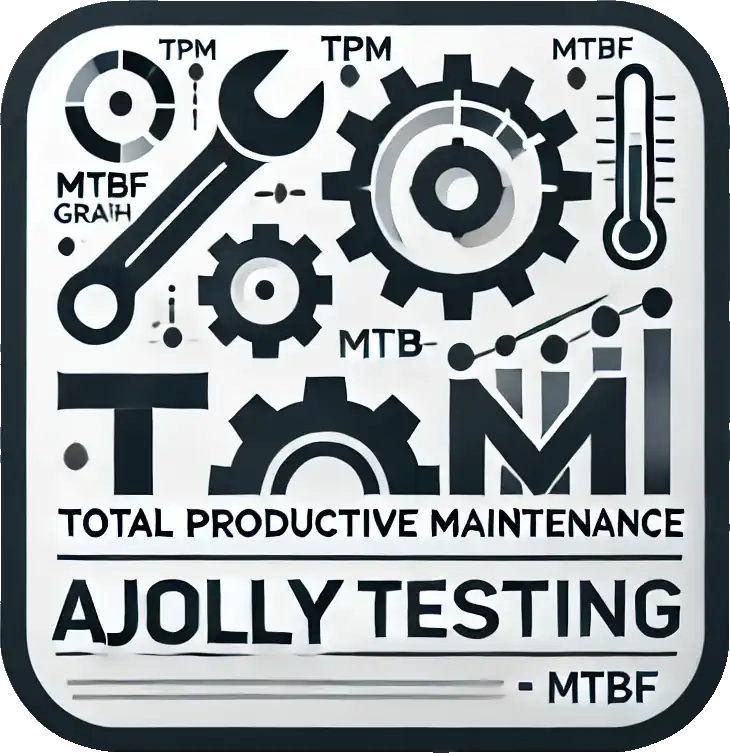
TPM (Total Productive Maintenance) is an industrial management methodology focused on maximizing equipment efficiency through the involvement of the entire team — operators, maintenance, and engineering — in preventive, autonomous, and continuous maintenance.
Unlike traditional reactive maintenance, TPM promotes a proactive culture that combines technical availability, reliability, and continuous improvement.
🎯 The 8 Pillars of TPM
- Autonomous maintenance – Operators perform inspections and basic care
- Planned maintenance – Preventive and predictive maintenance based on data
- Focused improvement (Kaizen) – Elimination of losses and recurring failures
- Education and training – Training of operators and technicians
- Integrated quality – Avoid defects caused by machine failures
- Initial control – Lean and reliable design from the start (Design for Maintenance)
- Safety and environmental management – Safe and sustainable environments
- Administrative TPM – Application of principles in support areas
📉 What Losses Does TPM Combat?
| Type of Loss | Example in Test or Production Environment |
|---|---|
| Unplanned Downtime | Instrument breakdowns, test jig failures |
| Lengthy Setups | Fixture changes or test software reconfiguration |
| Minor Stops | Frequent adjustments to sensors or interfaces |
| Low Speed | Manual operations or slow interfaces |
| Scrap and Rework | Errors caused by mechanical or electrical failures |
| Start-up and End-of-Shift Losses | Lack of standardization in operation handover |
🔧 How AJOLLY Testing Supports Your Project with TPM
AJOLLY Testing integrates TPM principles into its testing and automation systems, promoting smart maintenance, maximum availability, and operational reliability.
🛠️ Equipment Designed for Availability
- Test jigs and benches with easy access for cleaning, replacement, and inspection
- Standardized and modular mechanical and electrical interfaces
- Technical documentation and visual maintenance instructions (5S)
🧠 Monitoring and Predictive Maintenance
- Usage and wear sensors integrated into equipment
- Automatic alarms based on usage time or operation cycles
- Integration with MES systems for maintenance management and calibration
📊 Data for Decision Making
- Failure and cause recording in test reports
- Analysis of MTBF, MTTR, OEE and availability indices
- Generation of Pareto charts with the most recurring failures by line or operator
🤝 Team Engagement
- Operator interfaces with active feedback and visual alarms
- Training of operators for minor corrections and inspections
- Electronic checklists integrated into the test release process
With AJOLLY Testing, maintenance becomes more than just a response to failure; it becomes an integrated strategy for reliability, quality, and test productivity.
